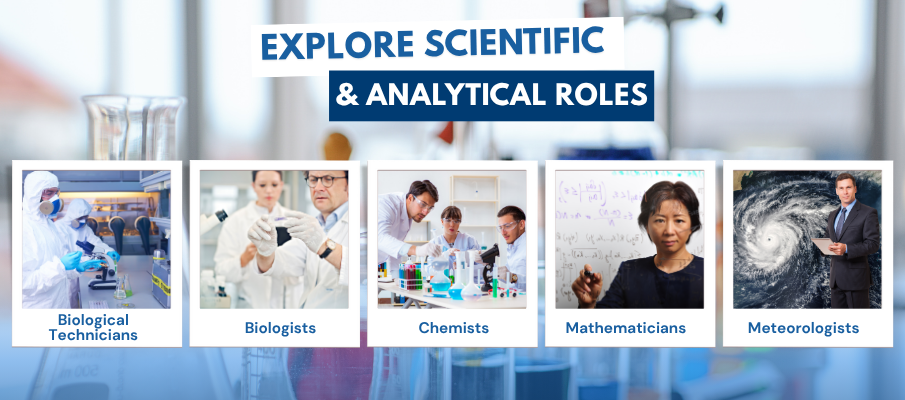
Have you ever wondered how a smartphone fits in your pocket and still connects you to the world, how we predict the weather, or how new medicines save lives? Behind all these everyday wonders lies a quiet force shaping our lives—Science and Research.
Science and research aren’t just for people in lab coats mixing chemicals or looking through telescopes. It’s much more than that. It’s about curiosity, asking questions, and finding answers that can change lives.
Whether it’s developing better crops, creating cleaner energy, or finding a cure for diseases, science and research are at the heart of progress.
What is Science & Research?
Science is the pursuit of knowledge. It’s about observing, experimenting, and understanding the world around us—be it the smallest particles or the vast universe. Research is the method by which we dive deeper into science. It involves systematic study, trials, observations, and conclusions.
If science is the “what,” research is the “how.”
Research spans across fields from physics to psychology, biology to computer science. It gives us answers to the problems we face, and more importantly, it helps us ask better questions.
What Happens in Science & Research?
Let’s break it down. What really happens when someone says they’re working in research?
- Discovering new things: Scientists examine existing problems—like antibiotic resistance or climate change—and try to find new, better solutions.
- Testing ideas: Every solution begins as a hypothesis. These ideas are tested through experiments. If they work, they’re developed further; if not, the researchers go back and try again.
- Publishing findings: Good research results are shared with the world through journals and conferences so that others can learn from them, challenge them, or build upon them.
- Changing lives: From vaccines to new technologies, research outcomes often directly impact the quality of our lives.
It’s a field where patience and passion are essential. Progress may be slow, but the impact is often huge and long-lasting.
Where Does Research Happen?
In India, research takes place in many places—more than you might imagine. Let’s talk about some of the most important ones:
Government Research Institutions: India has several world-renowned institutions under different government departments:
- CSIR (Council of Scientific & Industrial Research) – Covers everything from chemicals to genomics.
- ISRO (Indian Space Research Organisation) – Our pride in space exploration and satellite research.
- ICMR (Indian Council of Medical Research) – Leads health and medical studies.
- DRDO (Defence Research and Development Organisation) – Focuses on innovations for India’s defence forces.
- IITs and IISc – These institutions are not just for engineering or science education. They are powerhouses of original research.
Universities: Many universities across the country offer research opportunities in both science and social sciences. Jawaharlal Nehru University (JNU), Banaras Hindu University (BHU), and Delhi University are a few among them.
Private Research Labs & Companies: Companies like Tata Institute of Fundamental Research (TIFR), Biocon, Infosys, and even international giants like Google and Microsoft have R&D centres in India. These provide opportunities in applied research and product development.
What Kind of Jobs Are Available?
You don’t always need a PhD to work in research. Here are some career options:
| Careers | Eligibility |
|---|---|
| Biological technologists and technicians | Bachelor's Degree |
| Biologists and related scientists | Bachelor's Degree |
| Chemical technologists and technicians | Bachelor's Degree |
| Chemists | Bachelor's Degree |
| Mathematicians, statisticians and actuaries | Bachelor's Degree |
| Meteorologists and climatologists | Bachelor's Degree |
| Natural and applied science policy researchers, consultants and program officers | Bachelor's Degree |
| Other professional occupations in physical sciences | Bachelor's Degree |
| Physicists and astronomers | Master’s Degree |
| Statistical officers and related research support occupations | Bachelor's Degree |
| Technical occupations in geomatics and meteorology | Bachelor's Degree |
Each of these roles plays a vital part in the ecosystem. Some jobs require only a bachelor’s or master’s degree, while others may require a PhD.
How Can You Start a Career in Research?
Starting a career in research doesn’t have to be intimidating. Here’s a practical roadmap:
- Choose Your Field: Are you interested in biology, physics, chemistry, social science, or maybe computer science? Start by figuring out what excites you.
- Build a Strong Foundation: Do your undergraduate degree in a relevant field. Colleges like IISERs, IITs, or top central universities provide excellent grounding.
- Internships Matter: Join summer internships at research institutions like IISc, IITs or even through programs like KVPY, INSA, or IAS.
- Go for Higher Studies: A master’s degree followed by a PhD will open doors to deeper research roles and professorships.
- Stay Curious: Read research papers, attend conferences, and watch lectures online. This keeps your spark alive.
Why is it Important for India?
India is a country with 1.4 billion dreams. Science and research help turn those dreams into reality. Whether it’s building a sustainable agriculture model for our farmers, advancing digital technologies for rural areas, or fighting health issues like diabetes and cancer, research empowers India to solve its problems.
Moreover, when Indians lead in global science—like Dr. Venkatraman Ramakrishnan, a Nobel Prize winner, or the ISRO Mars Orbiter Mission—it inspires the next generation and boosts national pride.
Final Thoughts
Science and research are not just careers. They are journeys. They are about curiosity, courage, and commitment. You don’t have to be the smartest person in the room—you just need to ask the right questions and keep looking for answers.
So whether you’re a student wondering what to do next or a parent looking to guide your child—think about science not just as a subject but as a way of life. Because when you choose research, you’re not just building a career. You’re helping build the future.



